We hear lots in the news about plastic pollution and ocean plastic. However, have you ever wondered how this plastic is actually getting into the water here in the UK? Well, the main source of ocean plastic pollution is land-based, with 80% of plastic in the oceans originating from land. How though is this plastic ending in the sea?
There are multiple ways that plastic pollution is ending up in our oceans, here are some of the main causes.
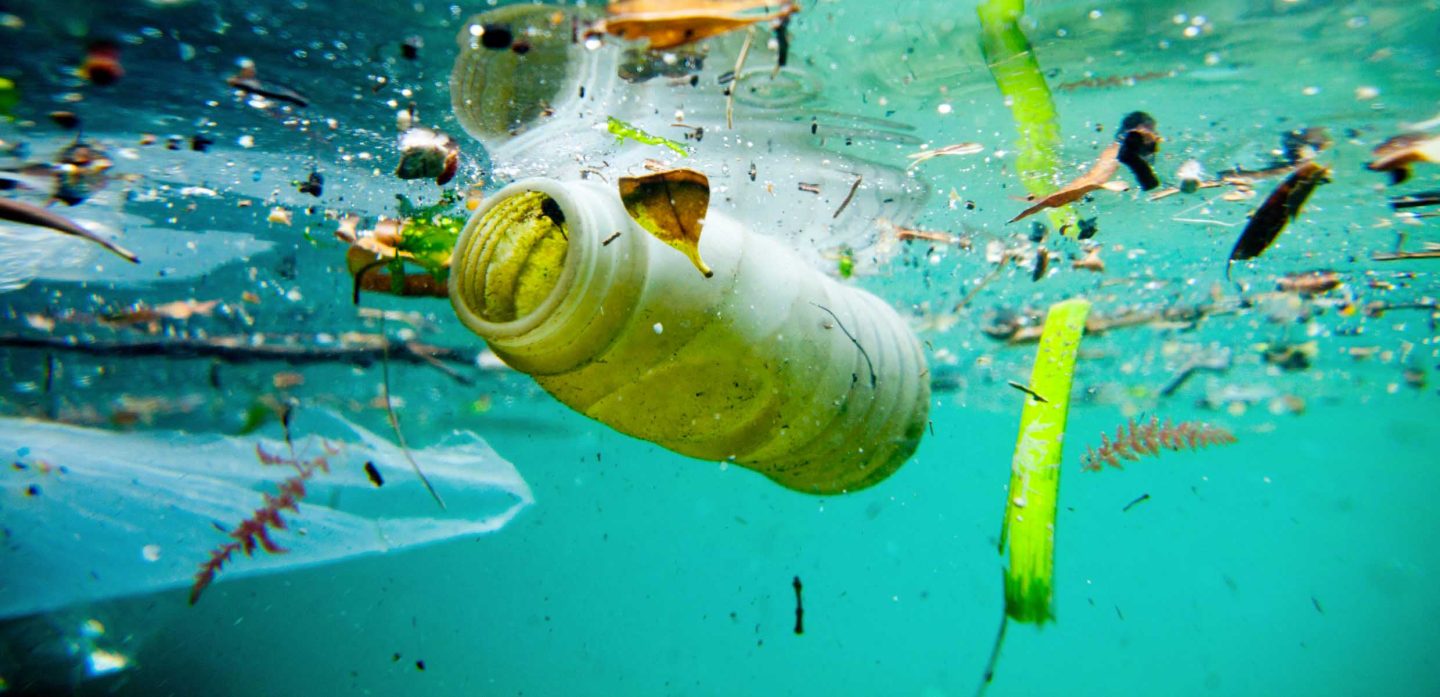
The Fishing Industry
A large contributor to ocean plastic pollution is ghost gear. ‘Ghost gear’ is the term used to refer to abandoned fishing gear that has been discarded into the sea. This usually takes the form of large tangles of netting cut loose and left to drift. Not only are these nets incredibly lethal to marine life, they are made of plastic, polluting our oceans. You can read more about Ghost Gear on our blog.
“Each year, more than eight million metric tons of plastic end up in the world’s oceans, and globally it is estimated that between 600,000 and 800,000 metric tonnes of ghost gear enter the oceans on an annual basis.“
What is ghost gear? Available at: <https://www.dfo-mpo.gc.ca/fisheries-peches/management-gestion/ghostgear-equipementfantome/what-quoi-eng.html>
While takes an incredibly long time for this gear to break down, when it does eventually break up, it becomes microplastic particles. These microplastic particles attract harmful bacteria, and are eaten by a whole host of marine life. You can read more about microplastics on our blog here. Microplastics are a huge source of pollution in our global oceans.
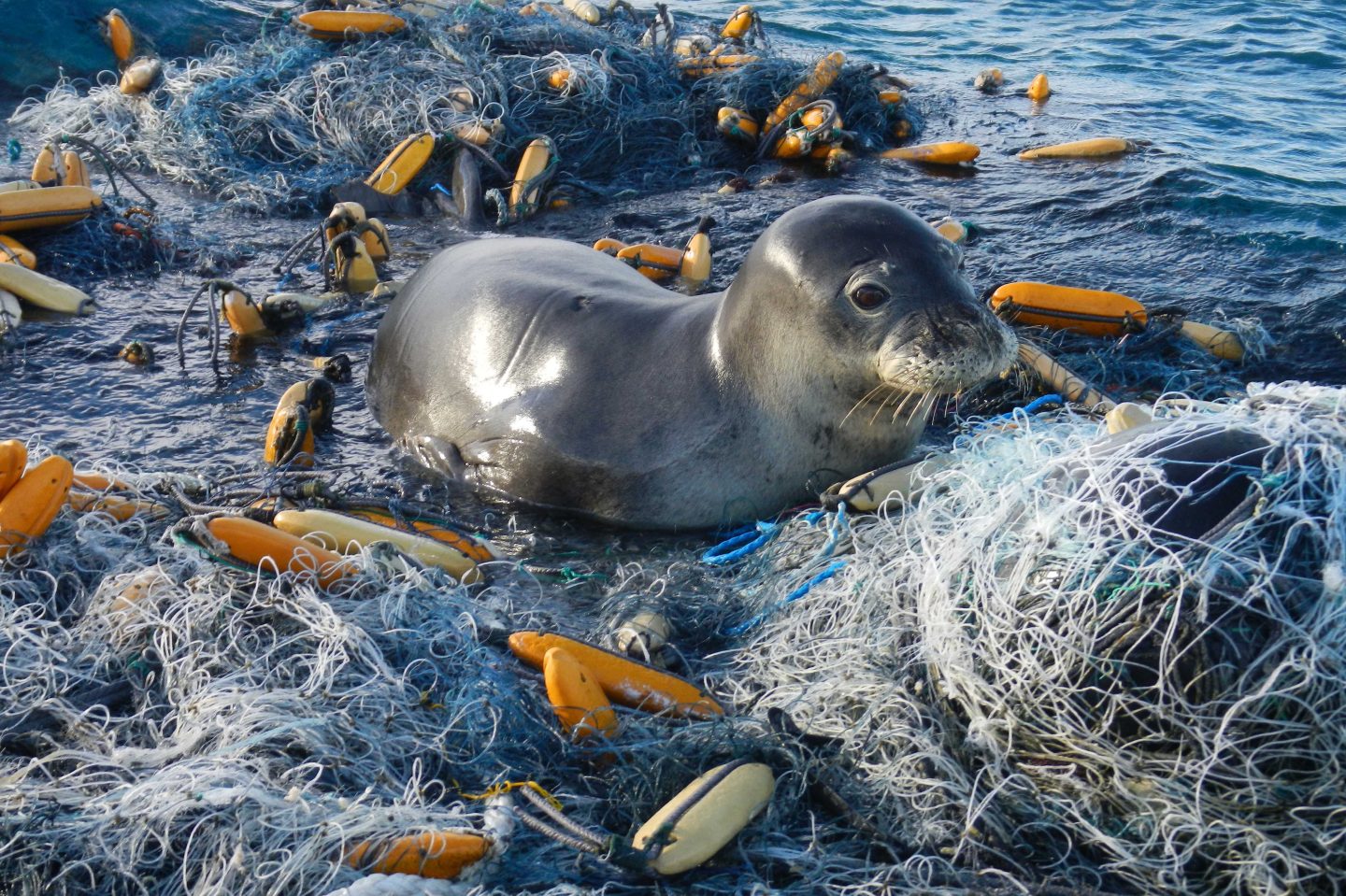
Tides
An obvious cause of ocean pollution is the tides. Litter left on the beach can be washed out to sea by the rising and falling tides. The real question however is how the litter on the beaches ends up there in the first place.
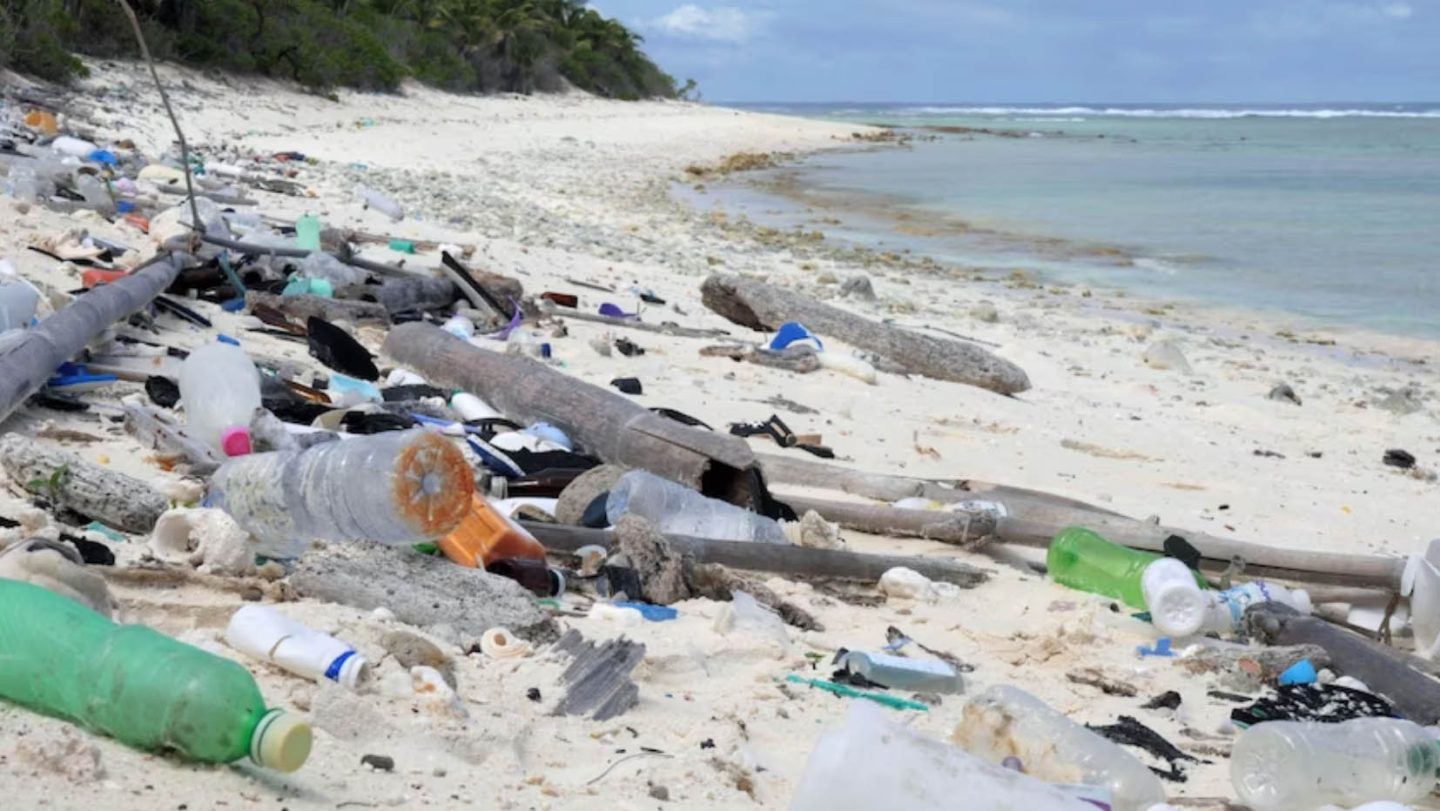
Littering
When a bin is already full, or unavailable, people are far more likely to drop litter rather than disposing of their rubbish correctly. More than two million pieces of litter are dropped in the UK every day. Almost 48% of people admit to dropping litter, and he amount of litter dropped annual in the UK has increased by 500% since the 1960s.*
Much of the litter that ends up in the ocean could have been recycled. This lack of proper disposal not only means we have increased levels of pollution, but we also lose the ability to reuse that resource to make new items, contributing to our ever decreasing global resources.
Litter that is dropped can end up blown onto the beaches, into storm drains, or into rivers and canals, where it then makes it way into the ocean.

Waterways
Litter and plastic in UK waterways (rivers and canals) directly feeds pollution out into the oceans. The Canal and River Trust released a statement saying that “Each year, an estimated 14 million pieces of plastic rubbish end up in and around our canals and rivers, with around 500,000 pieces flowing out into our oceans.” Half a million bits of rubbish flowing from our waterways directly out into the ocean is a massive plastic pollution source.
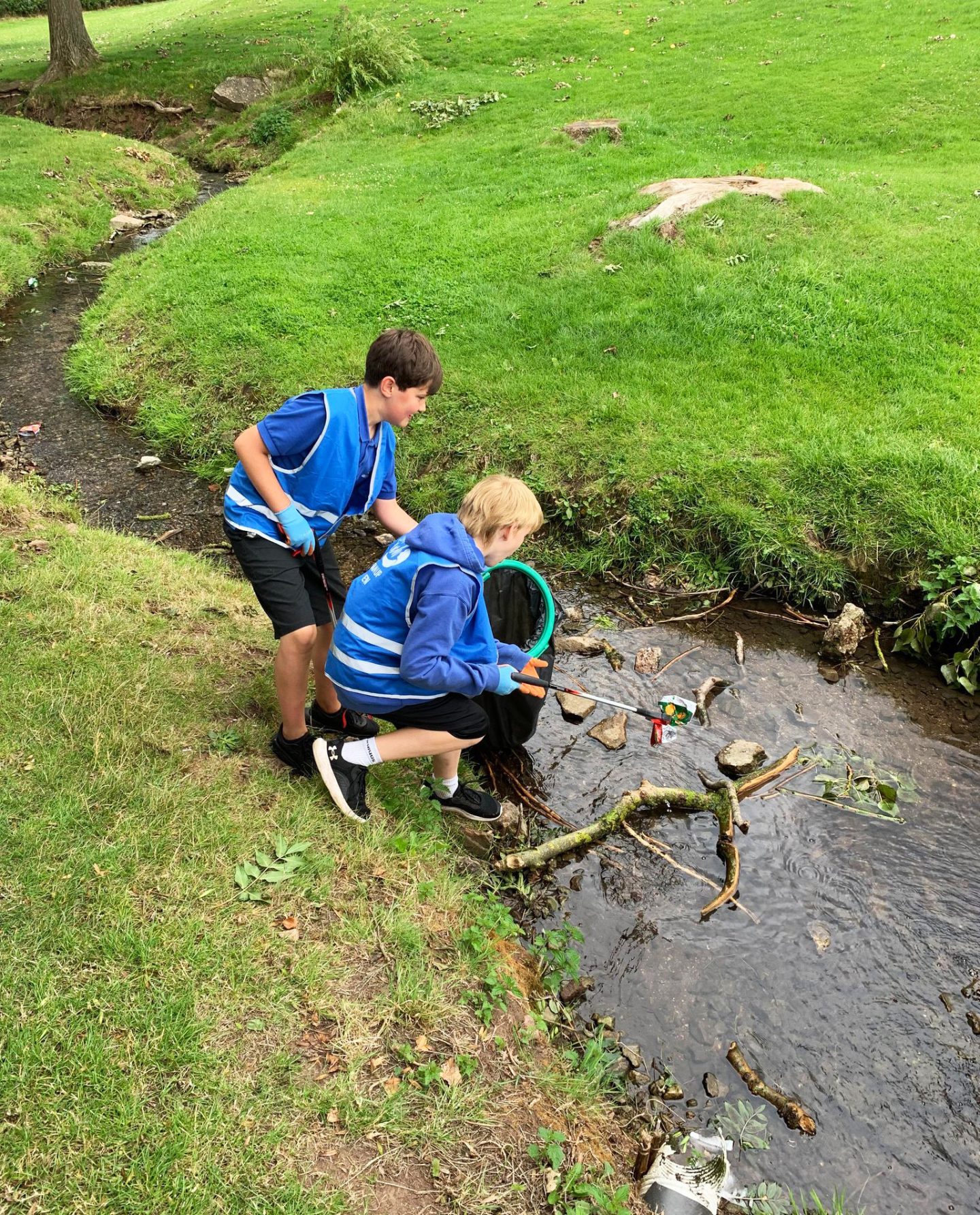
Wind and Rain
The wind can be easily overlooked when compared to large fishing boats dropping nets, or a stream of litter coming from our rivers. However, the wind is a large contributing factor towards ocean pollution. Rubbish located far in land can end up out at sea thanks to the wind. Whether it be from overflowing landfills, un-emptied bins, or simply from litter dropped one piece at a time. Given that the majority of litter and plastic is very light weight, these items can easily be carried away by the wind and rain and either be blown or washed directly into our waterways, out to sea, or into our storm drains.
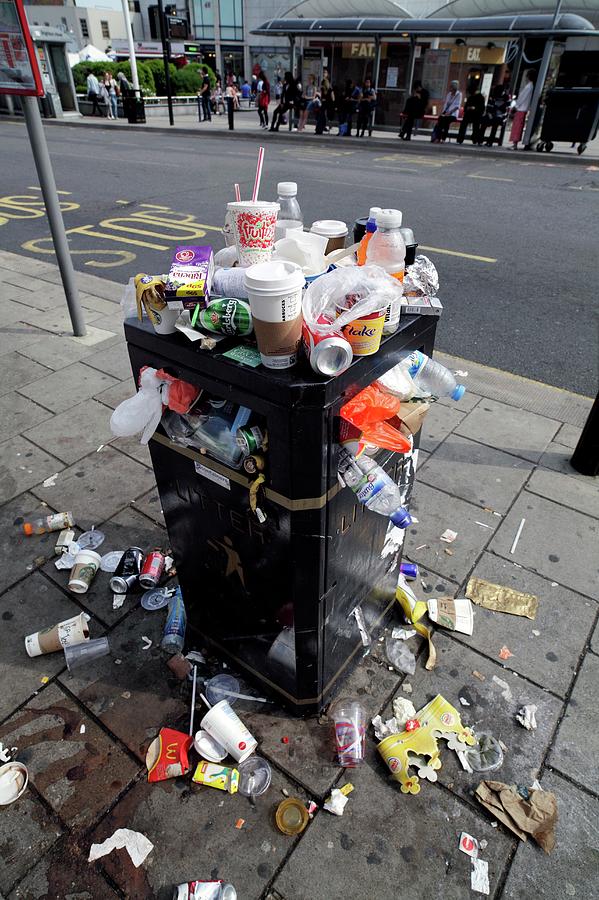
Storm Drains
Storm drains are on every street and road in the UK. Litter can be washed by the rain towards these drains, or blown by the wind into these grates. Once inside the plastic pollution is then carried out to sea. Litter Free Coast and Sea Somerset have launched a campaign called Only Rain Down The Drain to raise awareness and fight the common misconception that street drains are often not linked to treatment centres and therefore their contents head straight out to sea.
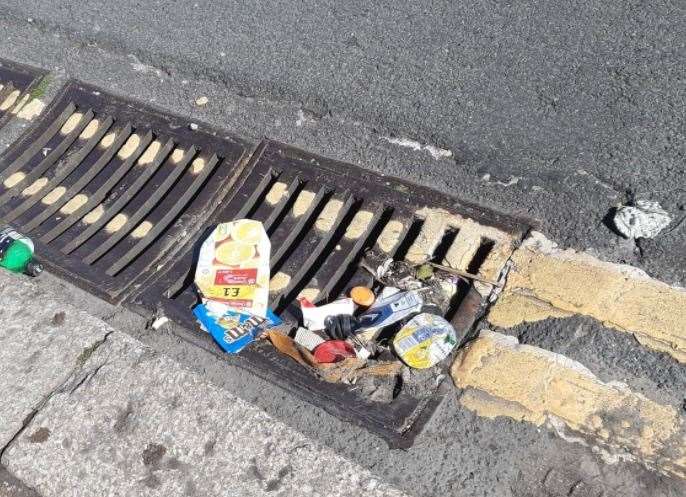
Flushing/ Drains
Items being flushed are highly likely to end up at sea. Items such as sanitary products, cotton buds, and wet wipes, that can last for 100 years each, when flushed can pollute the oceans for almost a century. It is estimated that between 2.1 to 2.9 billion wet wipes are flushed down UK toilets annually. These wipes breakdown into microplastic particles in our oceans, polluting the water quality for everyone.
Microplastic fibres are also released into our waters when we do the laundry. These tiny plastic particles go down the drain every time we wash our clothes, most modern washing machines not having the filters required to prevent these particles polluting our oceans.
Microbeads is another form of pollution we wash down our household drains. Face and body scrubs often have microbeads inside that help to exfoliate our skin. These beads however go straight down the drain when we wash and therefore immediately pollute our oceans.
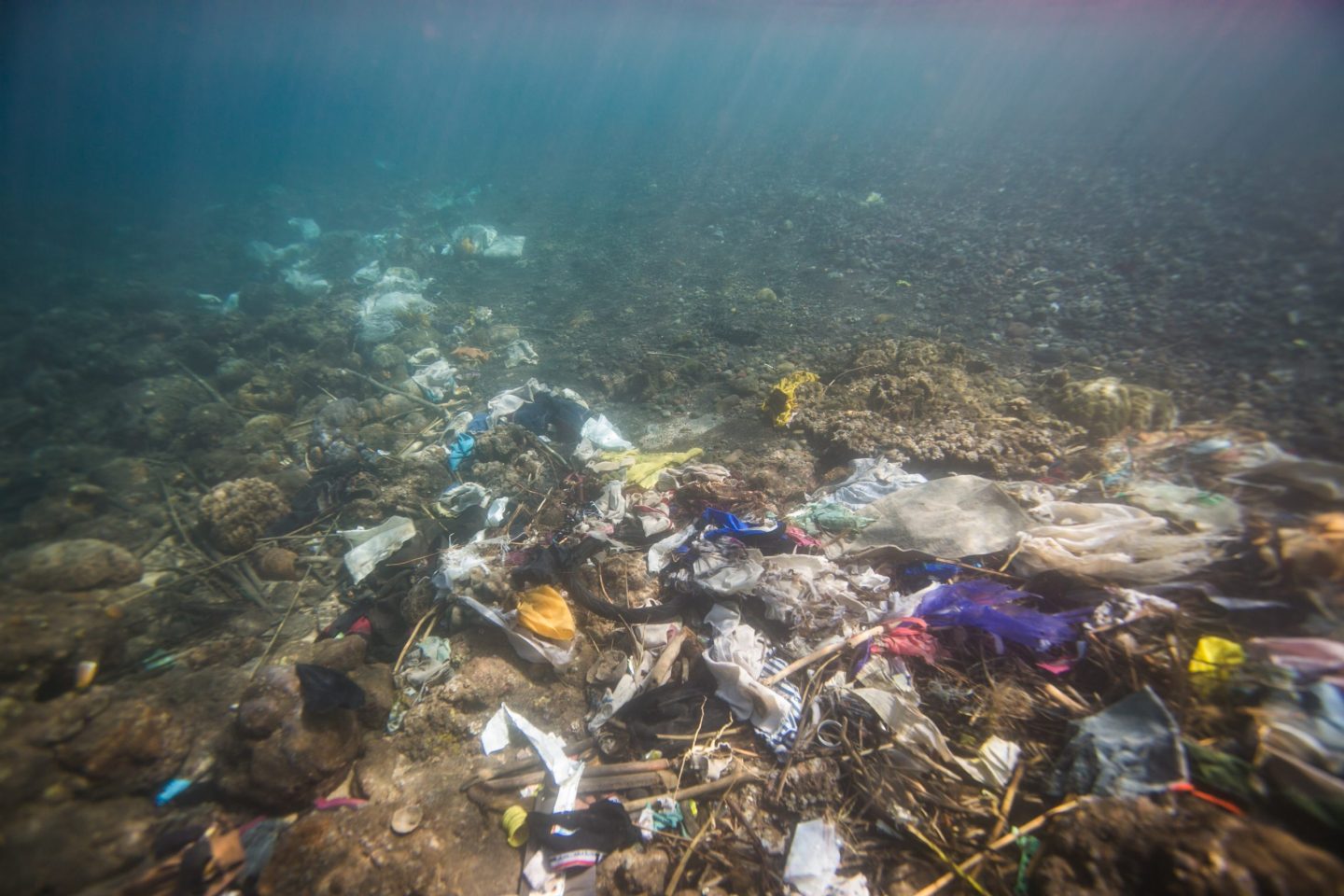
Conclusion
As you can see, our oceans are being polluted from a variety of sources, far more than the main ones we have listed above. Whether intentional or not, almost all of us are guilty of contributing to ocean pollution in one way or another.
It can be intimidating when facing such a huge problem to know what you can do to help. However, if we all make small behaviour changes we can make a big difference, such as:
- Taking our rubbish home when a bin isn’t available.
- Choosing beauty products without microbeads.
- Recycling as much as possible to reduce overflowing landfills.
- Not flushing items down the toilet.
- Not littering.
- Fitting a filter to your washing machine
- Taking part of litter picks.
To name just a few easy ways to make a meaningful change!
To reduce your plastic waste at home, why not also switch to sustainable items that can be used again and again, removing the need to plastic waste entirely? You can check out our entire reusable product range here.
Do you have any other ideas on how we can all work together to reduce ocean pollution? Leave your ideas in the comments below!
Sources:
- https://www.wwf.org.uk/updates/how-does-plastic-end-ocean
- https://planetearthgames.org/newssingle/10-facts-about-litter
- https://canalrivertrust.org.uk/news-and-views/features/plastic-and-litter-in-our-canals
- https://www.litterfreecoastandsea.co.uk/somerset/facts-and-resources/only-rain-down-the-drain/
- https://www.gov.uk/government/news/producers-urged-to-address-flushable-wet-wipes-labelling#:~:text=Wet%20wipes%20contribute%20to%2094,each%20year%20dealing%20with%20this.
- https://www.mcsuk.org/news/our-seas-are-swimming-in-wet-wipes-its-time-to-take-action/
